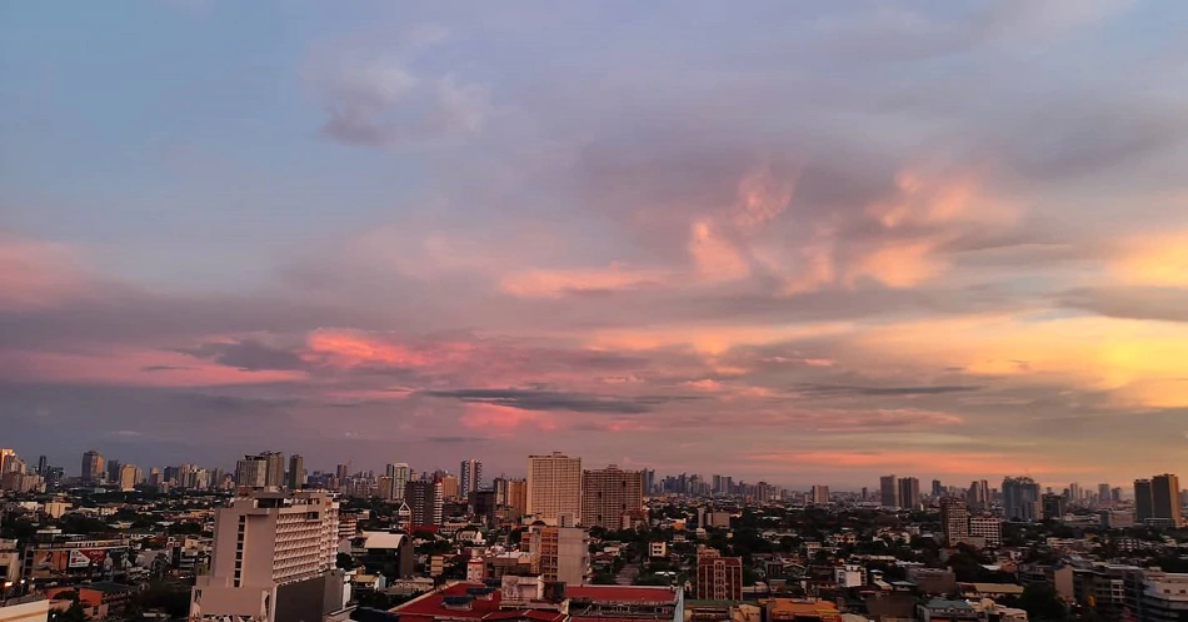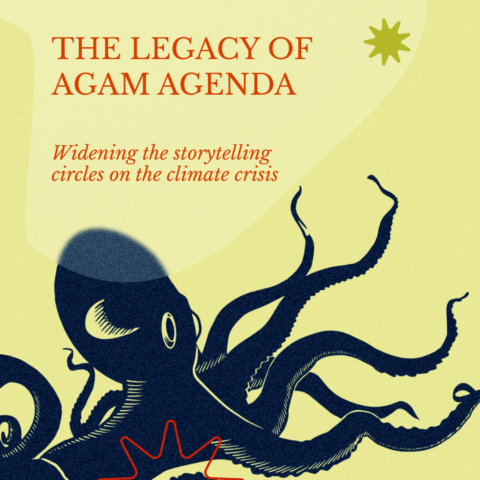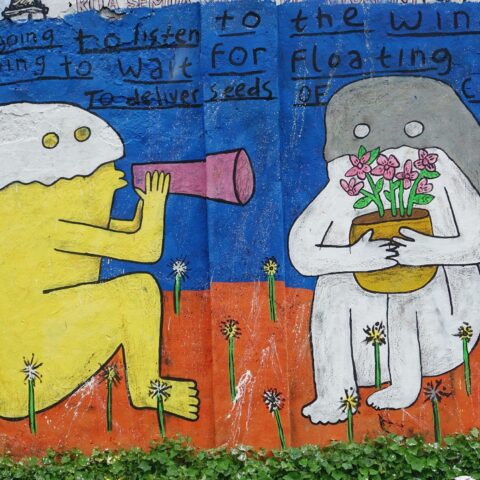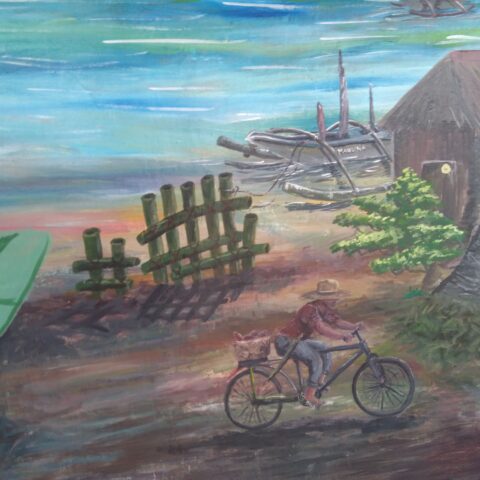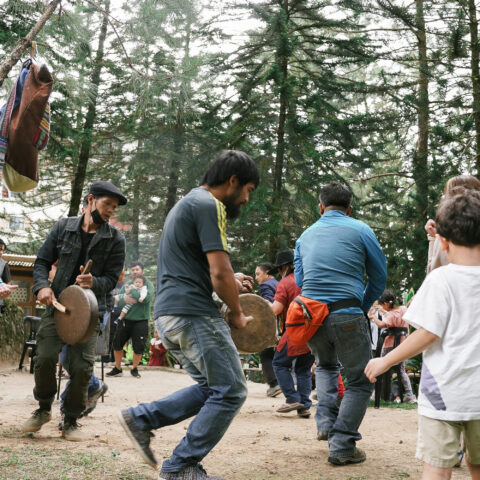Photos: Xiaojun Wang
By Renato Redentor Constantino
Read out at the event Possible Futures: The Story of the Global South, from the TED-X Global Regeneration Co-Lab Countdown, October 17, 2020
When we speak of the global South, we often unknowingly raise under-examined narratives that require closer scrutiny. The notion deals with so many unwieldy facets, and it is important we recognize a locus of hope and pain beyond the obvious, easy blame assigned nowadays to the concept of nation and all the accompanying nastinesses and feats of courage and sacrifice that have marked its modern history.
Size for example: the global South is not just massive; it is amorphous and intricate, composed of a bazillion moving parts in constant motion continuously marking and reassigning constituent ideas of borders and barbed wires.
Another deals with concepts of tide and time as the fortunes of people wax and wane like passing moons, and we find the sense of community in constant ebb and flow, colliding and merging as it comes into contact with other cultures, emerging eventually as something familiar yet wholly new.
There are usually two sides to this. One is marked with immense gain and colossal dispossession. The other by the gift bestowed by humility: transcendence.
We know the former more, yet the latter surrounds us.
We know that vanity is fleeting but somehow it is the violent narcotic of narcissism that still defines the sense of progress most people harbor today.
But on occasion we have also overcome our worst impulses, preferring the complicated salve of empathy and tolerance over the simplistic but paralyzing slavery of affluence, acquisition, and consumption-fueled rage.
Some of us who have wisely made an effort to study the past will be familiar with the endowments of colonialism and imperialism: great disruptions, mass death by famine and hunger amidst plenty, brutal war, naked and fully costumed misogyny, invasion, militarism propped up by dreams of plunder and accumulation, the purchase of peoples and cultures and the annexation of generations.
It should rank as one of the most stupid of mistakes to think these no longer matter and we are better off moving on. But it will probably be just as, if not more harmful, to pretend, or believe, these are the only legacies that matter.
We need to deal with our own blindnesses, for instance, so we can offer more than just anger. One blind spot can be called anthropocentrism, the incredible belief that humans are the most important entity in the universe. It is the driving force behind so much pillage and pain, behind delusions that offer the domestication of nature as a strategy to claim the future for perpetuity.
Another deals with the fear of uncertainty, which might be even more interesting. First, because uncertainty is actually the very ladder on which we can climb out of the pit of despair that many seem to find themselves in today, feeling powerless as they witness rampaging forest fires flare up everywhere alongside warming ocean-induced super hurricanes and the storm surges and severe flooding that often come in their wake. In all, the impacts punish not only the most vulnerable but the very people who have inflicted the least harm on the planet’s climate.
But uncertainty is not to be feared. She is our friend, our companion in struggle.
The truth is, people who take science seriously and who understand why climate change is today the most serious existential threat confronted by humanity are actually facing not uncertainty but the conceit of certainties: the thinking that we can go on ransacking the earth while a handful of humans live large off the backs of nature, and the majority, without any consequences.
But uncertainty is not to be feared. She is our friend, our companion in struggle. Uncertainty is integral to hope, as the writer Rebecca Solnit reminds us often. Uncertainty simply means the bad guys have not won yet and that we still have a world – a common future – to win.
And what about transcendence? It should weigh on us, the breaking of different worlds we are witnessing today. In her poem “Watching My Friend Pretend Her Heart Isn’t Breaking” the poet Rosemerry Wahtol Trommer captures in singing verse the immensity of calamity we are provoking:
“On Earth, just a teaspoon of neutron star / would weigh six billion tons. Six billion tons / equals the collective weight of every animal / on earth. Including the insects. Times three. / Six billion tons sounds impossible / until I consider how it is to swallow grief…”
And where exactly do we go from here?
From her poem, “Caravan of the Waterbearers,” Marjorie Evasco gives us a glimpse of both destination and journey, in ways only poets of great power can illuminate.
“We have had to seek the center of the storm in the land we claim is ours… / we see the blur of broken earth, / blasted wastes, damned seas. / Our vision clears in our weeping / We have joined the trek / of desert women, humped over from carrying our own oases in the claypots of our lives, gathering broken shards we find in memory of those who went / ahead of us, alone.”
“When we seize the watersource,” writes Evasco, “our ranks will complete the circle we used to mark around / our tents, making homes, villages, temples, schools, our healing places. / And we will bear witness for our daughters and sons, telling them true stories / of the caravan.”
In her poem, “When Death Comes,” the late and deeply loved poet Mary Oliver gave humanity the ultimate recipe for meaning:
“When it's over, I want to say all my life / I was a bride married to amazement. / [That] I was the bridegroom, taking the world into my arms. / When it's over, I don't want to wonder / if I have made of my life something particular, and real. / I don't want to find myself sighing and frightened, / or full of argument. / I don't want to end up simply having visited this world.”
“I look upon everything,” Oliver wrote, “as a brotherhood and a sisterhood, / and I look upon time as no more than an idea, / and I consider eternity as another possibility, / and I think of each life as a flower, as common / as a field daisy, and as singular, / and each name a comfortable music in the mouth, / tending, as all music does, toward silence.”
Nearly a year ago, a dear friend decided to relocate from Beijing to Manila with his partner. Of course, the story behind the tough decision is a lot more complicated, in the beautiful human sense of complexity.
Trepidation they steadily shed as they came to know more of the new land and a people with strange habits and the propensity to find something humorous even amidst the most dire of tragedies. The two brought with them hope and it’s something they have been sharing without being much aware of the weight of their small acts.
I think often of Xiaojun’s window and what he sees each time he looks out. Every day he marvels at the sky – the same sky we the locals no longer see – and he takes a photo he shares on social media. It has become my ritual to enjoy his views, which show a horizon we have taken for granted, composed of clouds that calm the mind, shades of blue and blazing hues of sunset that expand the emotional plane, and the sense of an expanse from a risen moon or a rising sun that negates human conceits.
Xiaojun did not encounter the sky often in Beijing, which choked from the fumes of sleepless industries. But he saw it here in Metro Manila, and he sees it daily, the same sky Filipinos rarely notice nowadays.
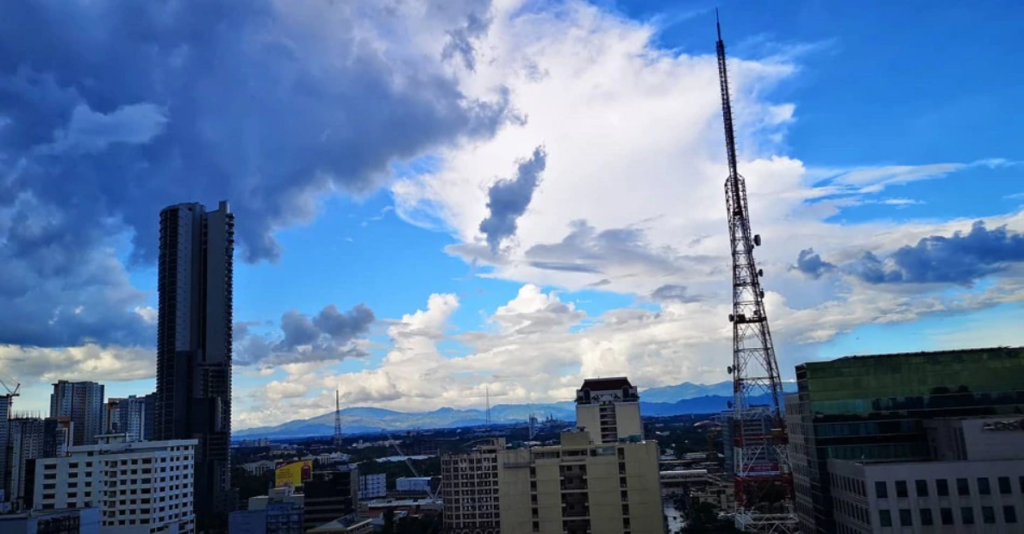
This is the world a foreigner sees. This is our world, something we can no longer see unless we’re prodded to look and squint. But when we’re lucky and kind to our senses, the things we’ve taken for granted will remind us of our capacity to receive the kind of awe that comes with revelation, a sensation most of us probably encountered long ago when we still recognized what we had and the innate texture of richness before we fell for the passing bling of possessions. The feeling might give you pause and make you wonder who exactly is the foreigner and who is the native.
“Our fascination with the possibility of life on other worlds is entirely understandable,” wrote the myrmecologist Edward Osborne Wilson once. “Yet it is passing strange that we pay so little attention to the largely unknown world all around us. The strange yet lovely biosphere is our only harbor in the vastness of space.”
What prevents us from seeing the grace that surrounds us? Is it the size of the picture that denies recognition? Or is it a sense of smallness that keeps our vision low and at ground level? How do we comprehend the enormity of the world and our tiny spot in its glory?
I think of Carl Sagan who also chewed on this question and who offered an insight that is just as gripping. “For small creatures such as we,” said Sagan, “the vastness is made bearable only through love.”
Sagan points us to something we often seem to take great pains to ignore or avoid grappling with, the one thing that might actually offer a reasonable notion of distinction with regard to our species and our sense of place in the cosmos. Because, as another renowned scientist, Lynn Margulis, so succinctly said, “We and our primate relatives are not special, just recent.”
Thank you very much, and I hope you enjoyed the talk.
